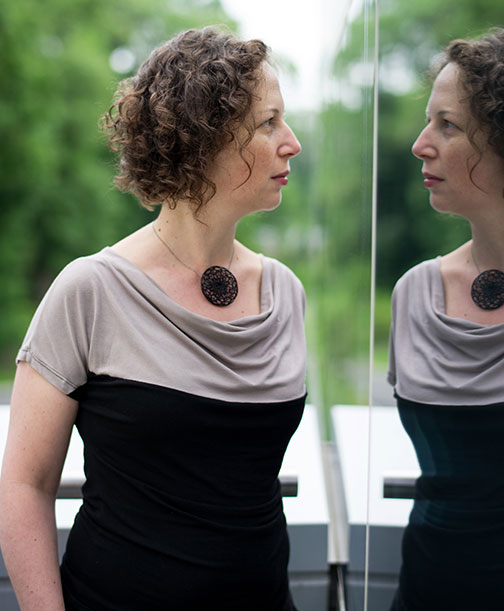Neuroscience: Rewriting History
If you are bitten by a dog, chances are good that future encounters with a dog will scare you. Even if you interact with 20 dogs and are not bitten, the fear response likely will be triggered the next time you encounter a dog.
Yael Niv, an assistant professor of psychology and neuroscience, is teasing out how our brains learn from experience and how we can unlearn fears and habits. The research has important implications for those with post-traumatic stress disorder. “We want to understand how an old, possibly traumatic memory can be erased,” she explains. The key, according to Niv, is understanding when the brain forms new memories and when it updates old ones.
In a recent experiment with researchers at the University of Texas at Austin, Samuel Gershman, a graduate student in Niv’s lab, attempted to alter the memories of rats that had learned to associate a neutral “toot” sound with an electric shock to the foot. Just as a dog bite generates a fear response the next time one sees a dog, the rats in the laboratory associated the sound with the shock. The link remained even when the sound was played several times without a shock being administered, because the rats’ brains cataloged the newer experiences as different memories, so the old memories remained intact, Niv says.
Niv wanted to find out how such negative associations are erased. She found that if new experiences are very similar to old experiences, the brain groups these memories together and modifies the old memory, rather than adding a new one. To make them unlearn the association, the rats gradually were weaned from the pairing, rather than the pairing being halted abruptly.
Although the animals still were exposed to shocks in the unlearning phase, the gradual decrease in pairing resulted in the modification of the older memory. Over time, the animals stopped associating the sound with the negative experience. A month later, the animals had no fear of the sound. “The traumatic memory no longer lingered,” says Niv.
A similar experiment was done on 14 people who were presented with images of snakes followed by an electric shock to the wrist, which resulted in a fear of pictures of snakes (fear was measured as an increase in sweat). Just as in the animal experiments, the participants who were weaned off the unpleasant association gradually rather than abruptly recovered from the fear.
Niv recently received a Presidential Early Career Award for Scientists and Engineers, which comes with a five-year grant of about $1 million from the U.S. Department of Defense to continue her research on learning and memory. She is planning additional experiments to test the boundaries of this unlearning effect and to evaluate how effective it is for a fear acquired several months or even a year earlier. “We know quite a lot about learning and memory, but these are usually studied in isolation. What we are trying to understand is how learning interacts with memory in our brains.”













No responses yet